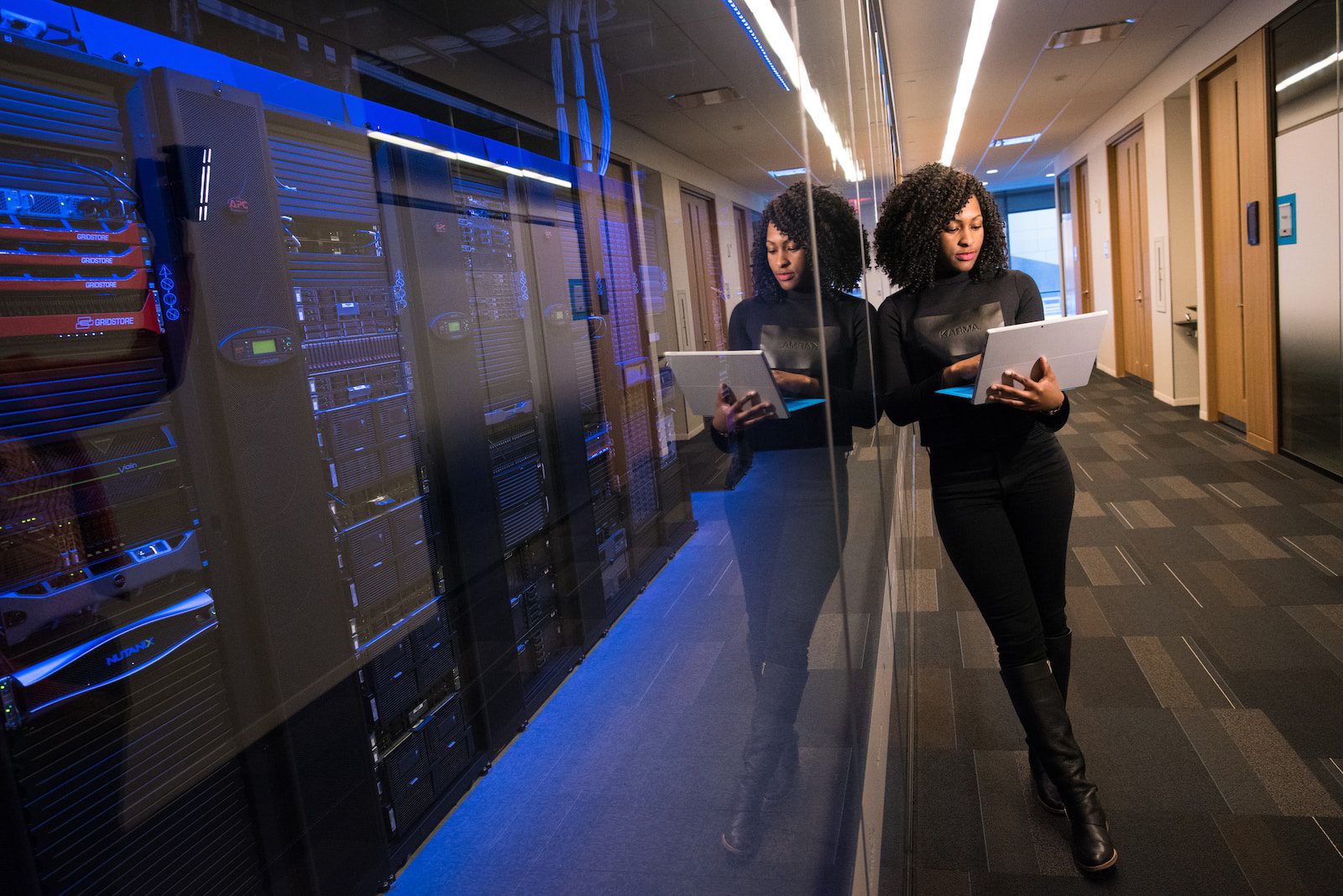In today’s world, where environmental concerns have become a pressing issue, it is crucial for individuals and businesses to make eco-conscious choices for a sustainable future. One such choice is selecting an eco dedicated server for web hosting needs.
Eco dedicated server solutions refer to web hosting services that prioritize environmentally friendly practices and sustainable operations. By choosing green hosting options, individuals and businesses can reduce their carbon footprint and contribute to a healthier planet.
What is an Eco Dedicated Server?
An eco dedicated server is a type of hosting service that prioritizes environmental sustainability and reduces its carbon footprint. Unlike traditional servers that solely rely on non-renewable energy sources, an eco dedicated server is designed to operate using energy-efficient infrastructure, renewable energy sources, and carbon-neutral practices.
One of the key features of an eco dedicated server is its use of renewable energy sources such as wind or solar power. By utilizing these sources, an eco dedicated server reduces its reliance on traditional energy sources such as coal and gas, and contributes to reducing carbon emissions. Additionally, eco dedicated servers are designed with energy-efficient hardware and cooling systems that further reduce energy consumption.
Another significant aspect of eco dedicated servers is their carbon-neutral operations. This means that the server provider takes steps to offset their carbon emissions by implementing sustainable practices such as tree planting initiatives or purchasing carbon credits. By doing so, eco dedicated servers aim to minimize their impact on the environment and support sustainable practices.
Overall, eco dedicated servers are an excellent choice for those who are environmentally conscious and want to make a positive impact. By choosing an eco dedicated server, users can reduce their carbon footprint, support sustainable practices, and contribute to a healthier future.

Advantages of Green Hosting
Green hosting isn’t just good for the environment; it offers practical benefits for businesses and website owners as well. By choosing a sustainable web hosting provider, you’re making a positive impact on the planet while enjoying several advantages.
- Reduced energy costs: Green hosting providers use energy-efficient infrastructure and renewable energy sources, which can result in lower energy costs for website owners.
- Better website performance: Green servers are optimized for energy efficiency, which can improve website speed and overall performance. This is because they use newer hardware, more efficient cooling systems, and are less likely to experience downtime.
- Positive brand image: Consumers are becoming increasingly environmentally conscious and are more likely to support businesses that prioritize sustainability. By choosing a green hosting provider, you can enhance your brand image and attract eco-conscious customers.
- Support for a cleaner planet: Sustainable web hosting contributes to a healthier environment by reducing carbon emissions and supporting the use of renewable energy sources. By choosing a green hosting provider, you’re actively supporting a cleaner planet.
Green hosting is a practical and effective way for businesses and website owners to reduce their carbon footprint while enjoying several key benefits. By choosing a sustainable web hosting provider, you’re making a positive impact on the environment while also gaining access to high-performance servers, lower energy costs, and a positive brand image.

Choosing an Eco-Friendly Data Center
When choosing a dedicated server provider, it’s essential to consider the environmental impact of the data centers used. Opting for an eco-friendly data center can significantly reduce the carbon footprint of your server operations.
One crucial factor to consider is the data center’s use of renewable energy. Look for providers that utilize wind, solar, or hydroelectric power to reduce reliance on non-renewable energy sources.
Providers with energy-efficient infrastructure are also ideal. Data centers with efficient cooling systems, low-power hardware, and virtualization technologies can significantly reduce energy consumption.
| Certifications for Environmental Standards | Description |
|---|---|
| Energy Star for Data Centers | A certification program for energy efficiency in data centers. |
| Leadership in Energy and Environmental Design (LEED) | A green building certification program that includes data centers. |
Certifications for environmental standards, such as Energy Star for Data Centers or Leadership in Energy and Environmental Design (LEED), can also indicate a provider’s commitment to sustainability.
Before selecting a provider, inquire about their environmental policies and initiatives. Providers with sustainable practices, such as carbon-neutral operations, waste reduction, and recycling programs, can be excellent choices for eco-conscious web hosting.
When working with an eco-friendly data center, ensure that they regularly monitor energy consumption and emissions. Regular maintenance and upgrades can also help optimize server performance for lower environmental impact.
By choosing an eco-friendly data center, you can contribute to a healthier environment and support sustainable practices in the hosting industry.

Sustainable Practices in Server Management
Green server solutions and carbon-neutral hosting are becoming increasingly popular as companies seek to reduce their environmental impact. There are many sustainable practices that can be implemented in server management to minimize energy consumption, reduce waste, and achieve carbon-neutral operations.
Optimizing Server Energy Efficiency
One of the key sustainable practices in server management is optimizing energy efficiency. This can be achieved through various methods, such as:
- Using energy-efficient hardware and components
- Implementing virtualization and consolidation techniques to reduce the number of physical servers
- Installing automatic power management tools to keep energy usage to a minimum during off-hours
By employing these energy-saving strategies, companies can reduce their carbon footprint and save on energy costs.
Minimizing Waste
Another important sustainable practice in server management is minimizing waste. This can be achieved through:
- Properly disposing of old or outdated equipment through recycling or donation programs
- Reducing paper usage by implementing paperless policies for communication and documentation
- Minimizing packaging materials for new equipment and supplies
By implementing waste reduction strategies, companies can significantly reduce their impact on the environment.
Adopting Carbon-Neutral Hosting Solutions
Carbon-neutral hosting solutions involve offsetting carbon emissions through various initiatives, such as investing in renewable energy projects, planting trees, or purchasing carbon credits. By adopting carbon-neutral hosting solutions, companies can help mitigate their environmental impact and support sustainable practices.
A growing number of hosting providers are offering carbon-neutral hosting solutions, making it easier for companies to choose eco-friendly options for their dedicated server needs.
The Role of Renewable Energy in Green Hosting
Renewable energy is a crucial component of green hosting. Eco dedicated server providers are increasingly looking for ways to power their data centers with renewable energy sources, such as solar, wind, or hydroelectric power. By using renewable energy, hosting providers can reduce their reliance on fossil fuels and minimize their carbon footprint.
Renewable energy sources are reliable, sustainable, and emit significantly fewer greenhouse gases than traditional energy sources. Using renewable energy to power eco dedicated servers helps to reduce carbon emissions and provides a more environmentally friendly hosting solution.
One of the most significant benefits of renewable energy is the reduced impact on the environment. Solar power, for example, doesn’t produce any greenhouse gas emissions, toxic waste, or consume any water during operation. Similarly, wind and hydroelectric power have minimal environmental impact, making them ideal energy sources for green hosting.
Another advantage of renewable energy is the long-term cost savings. Once installed, renewable energy systems require little maintenance and have a lower cost of operations compared to traditional energy systems. As a result, eco dedicated server providers can offer competitively priced hosting services while reducing their environmental impact.
| Pros | Cons |
|---|---|
|
|
As renewable energy systems become more efficient and cost-effective, eco dedicated server providers are increasingly adopting them to meet their sustainability goals. By choosing a hosting provider that uses renewable energy, customers can support sustainable practices and contribute to a healthier planet.

Calculating and Reducing the Carbon Footprint of a Dedicated Server
Calculating and reducing the carbon footprint of a dedicated server is an important step towards achieving sustainable web hosting. By monitoring energy consumption and carbon emissions, website owners can identify areas for improvement and implement strategies for lowering their environmental impact.
Measuring energy consumption: Website owners can use online calculators or software tools to measure the energy consumption of their dedicated servers. These tools typically require information such as the server’s wattage, hours of operation per day, and the cost per kWh of electricity. Using this data, website owners can estimate the amount of energy their servers consume each year.
Minimizing waste: To reduce waste, website owners can adopt strategies such as virtualization, consolidation, and server colocation. Virtualization allows multiple servers to run on a single physical machine, reducing the number of servers needed. Consolidation involves combining multiple servers into a single server, reducing the need for excess hardware. Server colocation involves moving servers to a data center that shares resources with other servers, reducing the need for individual hardware components.
| Strategy | Description |
|---|---|
| Virtualization | Allows multiple servers to run on a single physical machine, reducing the number of servers needed. |
| Consolidation | Combines multiple servers into a single server, reducing the need for excess hardware. |
| Server colocation | Moves servers to a data center that shares resources with other servers, reducing the need for individual hardware components. |
Optimizing server performance: Website owners can optimize server performance through various methods such as upgrading hardware, reducing idle server time, and implementing power management features. By using energy-efficient hardware and minimizing idle server time, website owners can reduce the amount of energy their servers consume. Power management features, such as automatic shutdown and wake-on-LAN, can further optimize server energy usage.

Offsetting emissions: To offset carbon emissions, website owners can participate in eco-conscious web hosting initiatives. These initiatives involve investing in renewable energy projects, using carbon credits, and supporting sustainability programs. By participating in these initiatives, website owners can contribute to reducing their carbon footprint and support a healthier environment.
- Investing in renewable energy projects
- Using carbon credits
- Supporting sustainability programs
By implementing these strategies, website owners can reduce the environmental impact of their dedicated server operations and contribute to a more sustainable future.
Conclusion: Embrace Green Hosting for a Sustainable Future
As the world becomes increasingly conscious of environmental issues, it’s important to make eco-conscious choices when it comes to our digital footprint. Choosing an eco dedicated server solution and opting for green hosting can have a significant impact on reducing carbon emissions and supporting sustainable practices.
In this article, we’ve explored the benefits of going green with hosting, what an eco dedicated server entails, and how to choose an eco-friendly data center. We’ve also delved into sustainable practices in server management, the role of renewable energy in green hosting, and calculating and reducing the carbon footprint of a dedicated server.
By making environmentally friendly choices, such as selecting a low-carbon footprint server and utilizing renewable energy sources, we can contribute to a healthier planet. Additionally, eco-conscious web hosting initiatives can offset our carbon emissions and raise awareness about the importance of sustainable practices.
As you consider your dedicated server needs, keep in mind the impact your choice can have on the environment. Embracing green hosting can lead to a more sustainable future and a healthier planet for generations to come.




